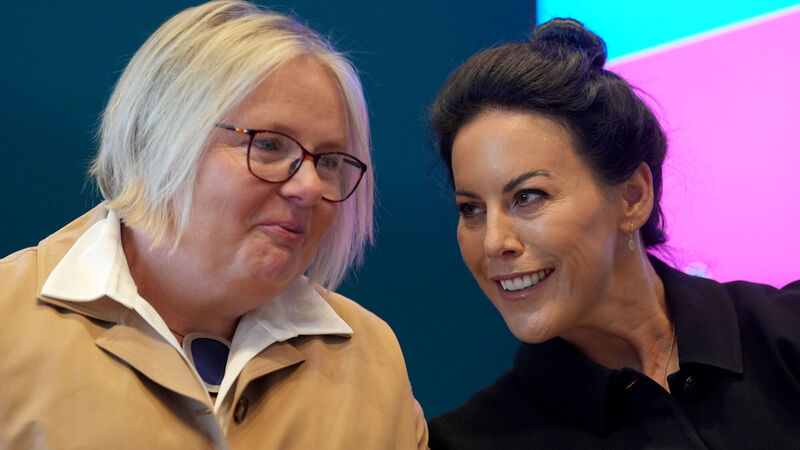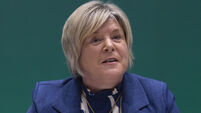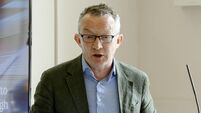Care of patients with rare disease who live outside Dublin to be moved away from capital

CEO of Rare Diseases Ireland Vicky McGrath (left) and Minister for Health Jennifer Carroll MacNeill (right) at the national rare disease strategy 2025-2030 launch at the Department of Health in Dublin. Photo: Brian Lawless/PA
A new national strategy for rare diseases could see a shift from Dublin-centric care to more local access and give people hope for change, Vicky McGrath, Rare Disease Ireland chief executive, has said.
About one in 17 people in Ireland have a rare disease.













